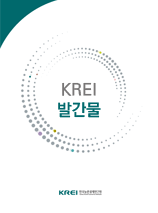
- Job Creation Potential for the Youth and Challenges in the Agricultural Industry
-

-
The job creation potential in the agricultural industry is higher than any other industries in Korea.
– The agricultural industry has a lower labor productivity than other industries, but creates a better employment effect given investment when the unemployment rate is extremely low due to an economic slump. The economic scale of the industry based on the gross output is KRW 320 trillion (8.9% of the entire industrial sector), with 3.96 million employees engaged (17.1% of the number of employees in the entire industrial sector) (The Bank of Korea, 2016). The coefficient of employment (the number of employees per KRW 1 billion of output) is 12.4, twice the average (6.4) of the entire industrial sector.
– Considering the forecast of agricultural workers in the future and the current employees to retire in the near future, about 1.16 million new workers will be needed in 2023 (based on the data of 2013): to be specific, 610,000 in agricultural/forestry production, 340,000 in food service, 98,000 in agricultural/forestry food processing, 29,000 in agricultural/forestry service, 5,000 in agricultural/forestry inputs, and 80,000 in agricultural/forestry distribution. This forecast shows a potential for job creation in the sector.
Despite the interest of the youth (agricultural high school and college students and those with non-agricultural majors) in working in the agricultural sector in the future, there are not sufficient information and training opportunities for them.
– According to the survey of agricultural high school and college students and those with other majors about their plans for future career, 42.2% of agricultural high school students, 73.8% of agricultural college students, and 30.4% of those with non-agricultural majors are interested in working in the agricultural industry after graduation.
– When asked about difficulties in seeking jobs or starting a new business in the agricultural industry, a large percentage of the respondents pointed out the lack of job opening information, relevant knowledge and techniques, and experience.
In order to boost youth employment in the agricultural sector, it is necessary to improve the quality of jobs, strengthen industry-academic cooperation between agricultural enterprises and schools, and establish a policy implementation framework to support such activities.
– The wage support and welfare system should be improved to enhance the quality of jobs in the agricultural industry. To this end, the central and local governments and institutions of each subcategory should make concerted efforts. If necessary, the basic income guarantee system can be applied first to young people who want to enter the agricultural industry.
– Youth employment can be accelerated by elaborating the policy regarding the intermediate phase between school and the labor market. Various policies are urgently needed for those who fail in moving on to the labor market after graduation. In particular, industry-academic partnerships should be promoted between agricultural schools and the agricultural job market.
– At the Ministry of Agriculture, Food and Rural Affairs, a division in charge of employment in the agricultural industry should be newly organized to systematically implement policies that encompass the education, development, supply and utilization of human resources in the industry. Relevant statistics and job information sharing systems should be reorganized. Furthermore, it is also needed to invigorate the public-private governance for boosting employment in the agricultural industry in each region and intermediate groups for supporting education and training of each subcategory of the sector. -
목차
요약문
The job creation potential in the agricultural industry is higher than any other industries in Korea.
– The agricultural industry has a lower labor productivity than other industries, but creates a better employment effect given investment when the unemployment rate is extremely low due to an economic slump. The economic scale of the industry based on the gross output is KRW 320 trillion (8.9% of the entire industrial sector), with 3.96 million employees engaged (17.1% of the number of employees in the entire industrial sector) (The Bank of Korea, 2016). The coefficient of employment (the number of employees per KRW 1 billion of output) is 12.4, twice the average (6.4) of the entire industrial sector.
– Considering the forecast of agricultural workers in the future and the current employees to retire in the near future, about 1.16 million new workers will be needed in 2023 (based on the data of 2013): to be specific, 610,000 in agricultural/forestry production, 340,000 in food service, 98,000 in agricultural/forestry food processing, 29,000 in agricultural/forestry service, 5,000 in agricultural/forestry inputs, and 80,000 in agricultural/forestry distribution. This forecast shows a potential for job creation in the sector.
Despite the interest of the youth (agricultural high school and college students and those with non-agricultural majors) in working in the agricultural sector in the future, there are not sufficient information and training opportunities for them.
– According to the survey of agricultural high school and college students and those with other majors about their plans for future career, 42.2% of agricultural high school students, 73.8% of agricultural college students, and 30.4% of those with non-agricultural majors are interested in working in the agricultural industry after graduation.
– When asked about difficulties in seeking jobs or starting a new business in the agricultural industry, a large percentage of the respondents pointed out the lack of job opening information, relevant knowledge and techniques, and experience.
In order to boost youth employment in the agricultural sector, it is necessary to improve the quality of jobs, strengthen industry-academic cooperation between agricultural enterprises and schools, and establish a policy implementation framework to support such activities.
– The wage support and welfare system should be improved to enhance the quality of jobs in the agricultural industry. To this end, the central and local governments and institutions of each subcategory should make concerted efforts. If necessary, the basic income guarantee system can be applied first to young people who want to enter the agricultural industry.
– Youth employment can be accelerated by elaborating the policy regarding the intermediate phase between school and the labor market. Various policies are urgently needed for those who fail in moving on to the labor market after graduation. In particular, industry-academic partnerships should be promoted between agricultural schools and the agricultural job market.
– At the Ministry of Agriculture, Food and Rural Affairs, a division in charge of employment in the agricultural industry should be newly organized to systematically implement policies that encompass the education, development, supply and utilization of human resources in the industry. Relevant statistics and job information sharing systems should be reorganized. Furthermore, it is also needed to invigorate the public-private governance for boosting employment in the agricultural industry in each region and intermediate groups for supporting education and training of each subcategory of the sector.저자정보
저자에게 문의
구매안내
KREI의 출판물은 판매 대행사 (정부간행물판매센터)와 아래 서점에서 구입 하실 수 있습니다.
판매대행사
- (주)정부간행물판매센터http://www.gpcbooks.co.kr사이트 바로가기
- 서울특별시 중구태평로 1가 25번지
- TEL 02) 394-0337, 734-6818
- FAX 02) 394-0339
판매서점
판매서점 교보문고 http://www.kyobobook.co.kr/ 영풍문고 http://www.ypbooks.co.kr/ 알라딘 http://www.aladin.co.kr/ 활용도 정보
활용도 정보 상세정보 조회 좋아요 다운로드 스크랩 SNS공유 10176 0 22 0 0 -
- Suggestions to Promote the Hometown Love Donation System
- Gouk, Seungyong
- 2022.11.25
- KREI 이슈리포트
-
- Ten Years of Korea-U.S. FTA: focusing on agri-food trade
- Kim, Kyungphil
- 2022.06.09
- KREI 이슈리포트
-
- Impacts of Ukraine-Russia Conflict on Global Grain Prices
- Kim, Jongjin
- 2022.03.31
- KREI 이슈리포트
-
- The Impacts of the COVID-19 on the Korean Agricultural Market
- Seo, Hong-Seok
- 2020.06.05
- KREI 이슈리포트
-
- 10 Agricultural Policy Issues of Korea in 2019
- Jeong, Minkook
- 2019.01.29
- KREI 이슈리포트
-
- State of Korean and Overseas Markets for Environment-Friendly Agricultural Products and Challenges 2018
- Jeong, Hakkyun; Sung, Jaehoon; Lee, Hyeonjeong
- 2018.09.12
- KREI 이슈리포트
-
- Measures to Establish the Water-Energy-Food Nexus for Agricultural Resource Management
- Sung, Jaehoon; Cho, Wonju; Lee, Hyeonjeong
- 2018.09.05
- KREI 이슈리포트
-
- Changes in the Trade of Agricultural and Livestock Products and Implications after Seven Years from the Enforcement of the Korea-EU FTA
- Song, Woojin; Lee, Hyunkeun; Myeong, Suhwan; Yoo, Juyoung
- 2018.06.29
- KREI 이슈리포트
-
- 10 Agricultural Policy Issues of Korea in 2018
- Kim, Byoungryul
- 2018.01.22
- KREI 이슈리포트
-
- Income Changes by Type of Farm Household and Implications
- Woo, Byungjoon
- 2017.11.30
- KREI 이슈리포트
-
- 10 Agricultural Policy Issues of Korea in 2019
- Jeong, Minkook
- 2019.01.29
- KREI 이슈리포트
-
- Income Changes by Type of Farm Household and Implications
- Woo, Byungjoon
- 2017.11.30
- KREI 이슈리포트
-
- 10 Agricultural Policy Issues of Korea in 2018
- Kim, Byoungryul
- 2018.01.22
- KREI 이슈리포트
-
- Implementation Plan and Implications of International Development Cooperation Projects for Agriculture in 2017
- Heo, Jang
- 2017.04.28
- KREI 이슈리포트
-
- 2016 Production Status and Market Prospect of Eco-Friendly Agricultural Products at Home and Abroad
- Jeong, Hakkyun; Lee, Hyejin; Kim, Changgil
- 2016.11.30
- KREI 이슈리포트
-
- The Impacts of the COVID-19 on the Korean Agricultural Market
- Seo, Hong-Seok
- 2020.06.05
- KREI 이슈리포트
-
- Global Spread of Saemaul Undong for Rural Development in Developing Countries
- Heo, Jang; Lee, Yoonjung
- 2016.11.30
- KREI 이슈리포트
-
- Goals and Strategies to Reduce Greenhouse Gas Emissions in the Agriculture Sector
- Jeong, Hakkyun; Kim, Changgil
- 2015.11.03
- KREI 이슈리포트
-
- 70 Years' Achievements and New Challenges of Korean Agriculture and Rural Communities
- Song, Miryung; Moon, Hanpil; Kim, Meebok; Seong, Jooin; Lim, Jieun
- 2015.09.15
- KREI 이슈리포트
-
- Strategy for Creative Economy, and Vitality in Agriculture and Rural District
- Park, Joonki
- 2013.06.18
- KREI 이슈리포트
의견남기기


